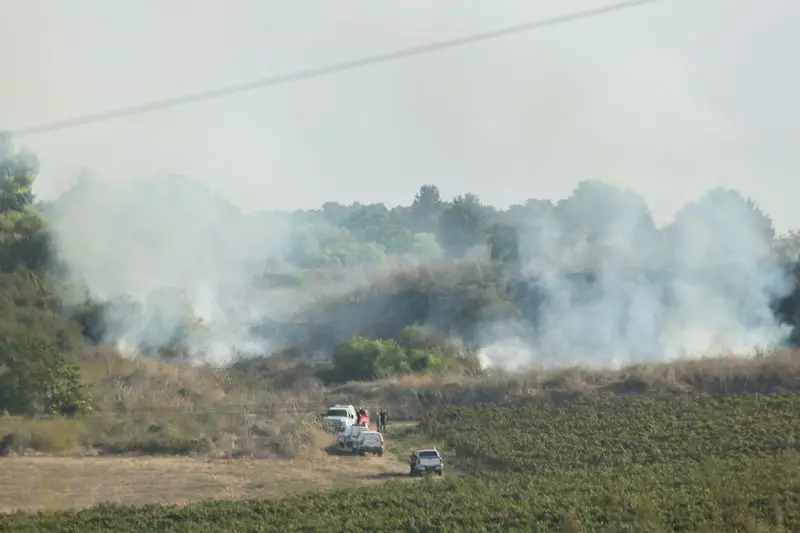The conflict between Israel and the Iran-aligned Houthi movement in Yemen has recently escalated, marking a significant shift in the regional dynamics of warfare. On Sunday, a Houthi missile struck central Israel for the first time, a development that drew immediate and stern reactions from Israeli Prime Minister Benjamin Netanyahu. The implications of this event extend beyond a single incident; as such developments highlight the increasing military capabilities of non-state actors in the region, particularly those backed by Iran.
The Missile Incident: Details and Reactions
Houthi military spokesperson Yahya Sarea announced that their forces launched a hypersonic ballistic missile that covered a distance of 2,040 kilometers in approximately 11.5 minutes. Initially, it was reported that the missile fell harmlessly in a deserted area, but subsequent assessments suggested that the projectile fragmented in mid-air, spreading debris across fields and near railway stations without harming any civilians. The activation of air raid sirens in Tel Aviv prior to the incident underscored the heightened state of alert in Israel.
Netanyahu’s response was unequivocal: he vowed that the Houthis would pay a “heavy price” for any attacks on Israeli territory. This statement, delivered during a cabinet meeting, points to Israel’s longstanding policy of retaliating with force against perceived threats, particularly those emanating from groups linked to Iran. The Prime Minister’s allusion to Hodeida port reflects a history of military strikes aimed at countering Iranian influence by targeting Houthi infrastructure.
The Houthis, who have consistently voiced their support for the Palestinian cause, have ramped up their military operations against Israel in the wake of rising tensions following the latest Gaza conflict. Their missile launches and drone attacks are framed as acts of solidarity with the Palestinians, underscoring the multifaceted nature of contemporary Middle Eastern conflict, where regional grievances are often intertwined with global political narratives.
In July, a prior drone strike on Tel Aviv resulted in casualties, marking a stark escalation in the types of threats that Israel faces. Israel’s response, which included airstrikes on Houthi positions, resulted in significant casualties and highlighted the destructive cycle of retaliation that has characterized the Israeli-Houthi relationship. As Sarea noted, this missile attack may be foreshadowing further incidents, especially as the first anniversary of the October 7 operation approaches.
The Growing Threat of Non-State Actors
The recent missile launch challenges the established paradigm of state-centric warfare. For years, Israel has successfully defended its airspace against traditional nation-state adversaries, but the emergence of non-state groups like the Houthis, armed with advanced missile technology, poses a new challenge. Their ability to launch long-range missiles from Yemen to central Israel represents a significant escalation which could alter military calculations in both Jerusalem and Washington.
Israeli military assessments indicate that some of the 40 projectiles launched from Lebanon, supposedly coordinated actions under the same ideological umbrella as the Houthis, were intercepted successfully. This speaks to Israel’s robust defense infrastructure, yet it also highlights vulnerabilities as missile technology continues to proliferate among non-state actors.
As the situation unfolds, it is crucial to recognize the implications of a deepening conflict between Israel and the Houthi forces. The potential for further military exchanges looms large, and Israel’s commitment to preemptive strikes based on historical precedent will likely shape its military engagement strategy moving forward. Both local and regional actors must grapple with the realities of a conflict landscape increasingly dominated by asymmetrical warfare. The advance of missile technology in the hands of non-state players not only complicates Israel’s security environment but also raises profound questions about the broader geopolitical stability in the Middle East. As tensions mount, the international community will need to grapple with finding effective diplomatic solutions to prevent escalation into larger conflicts.

